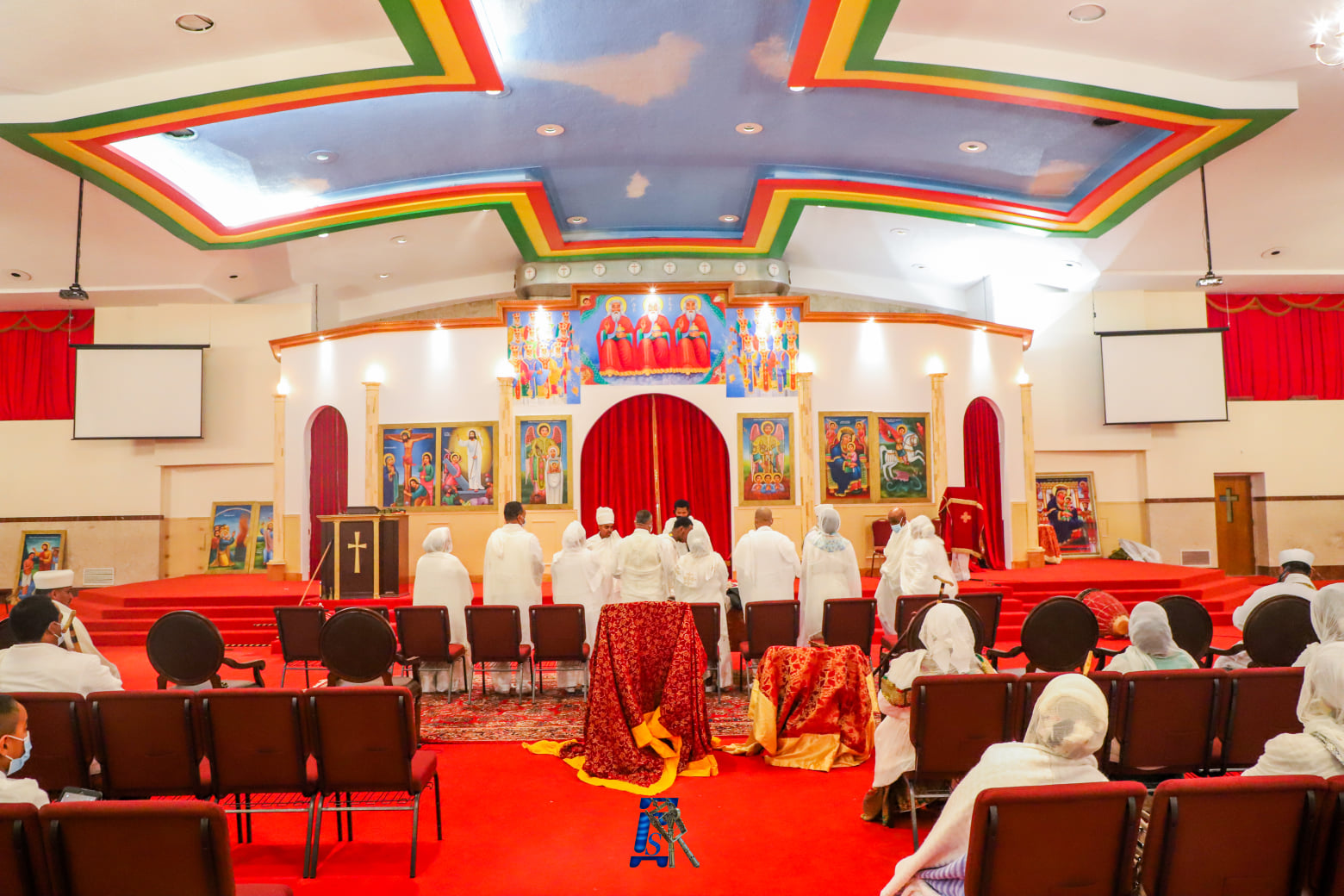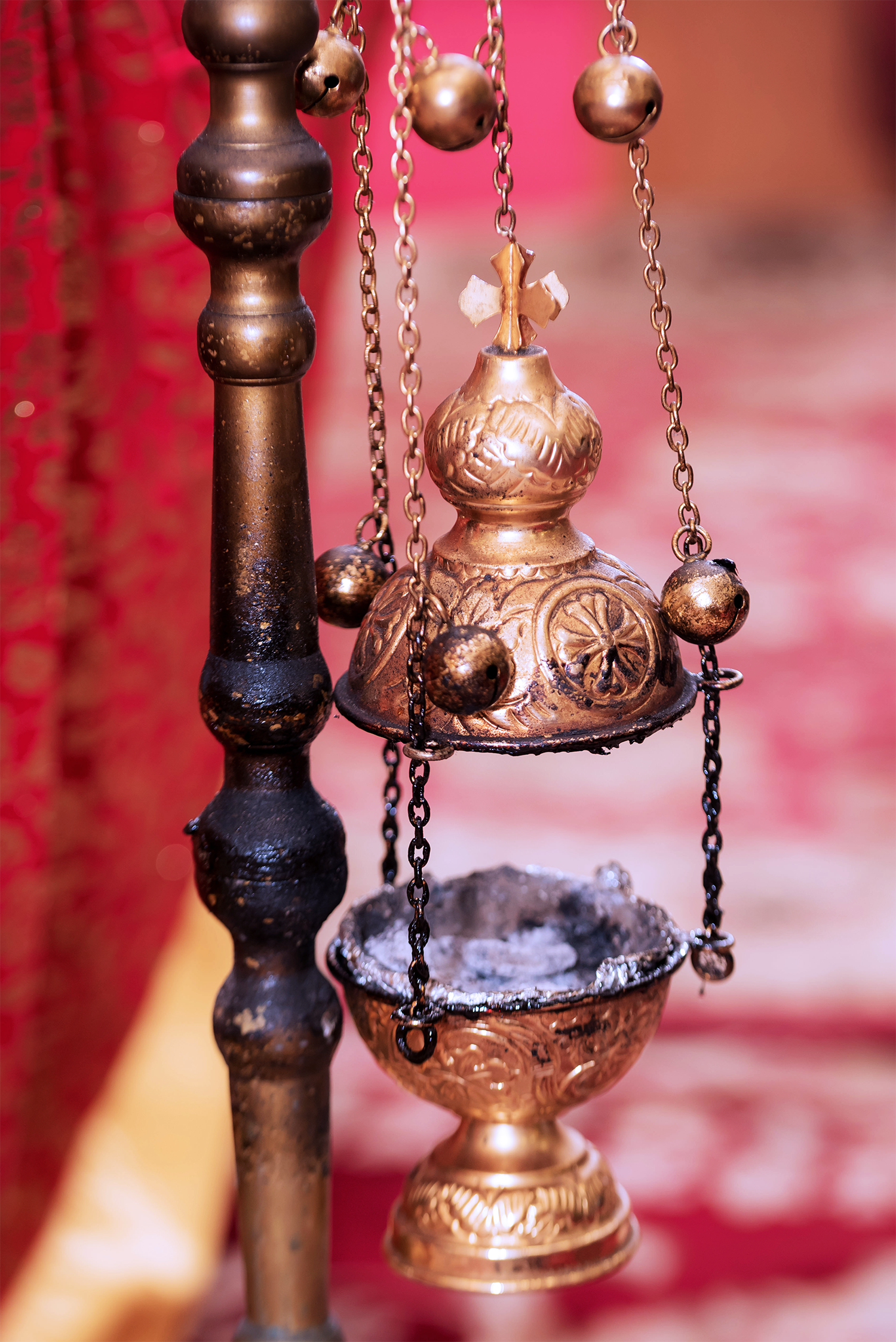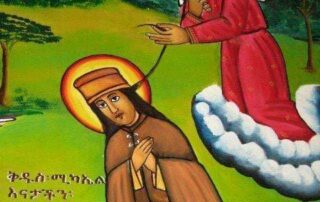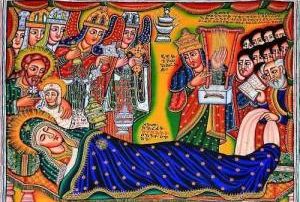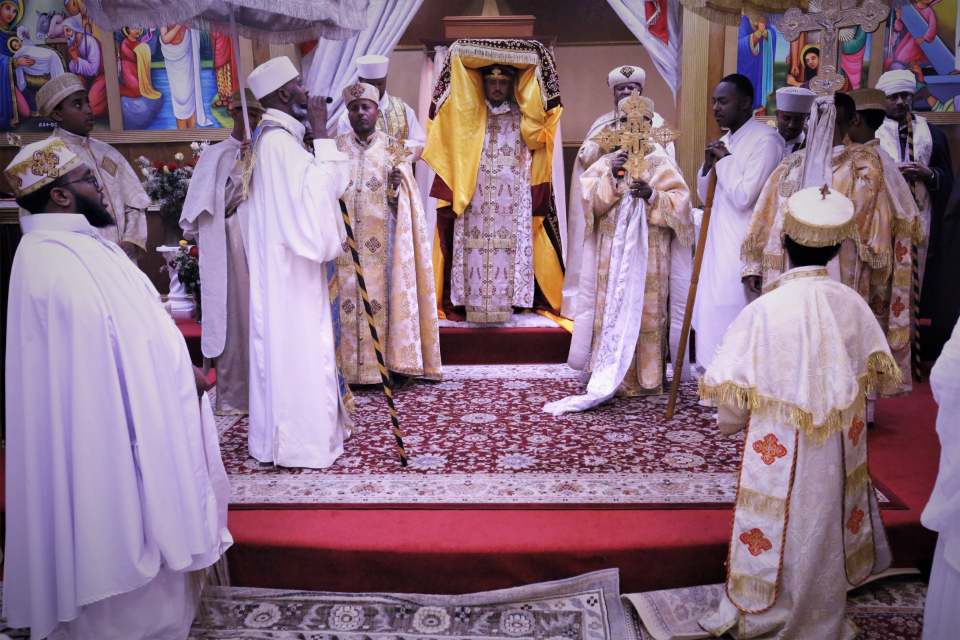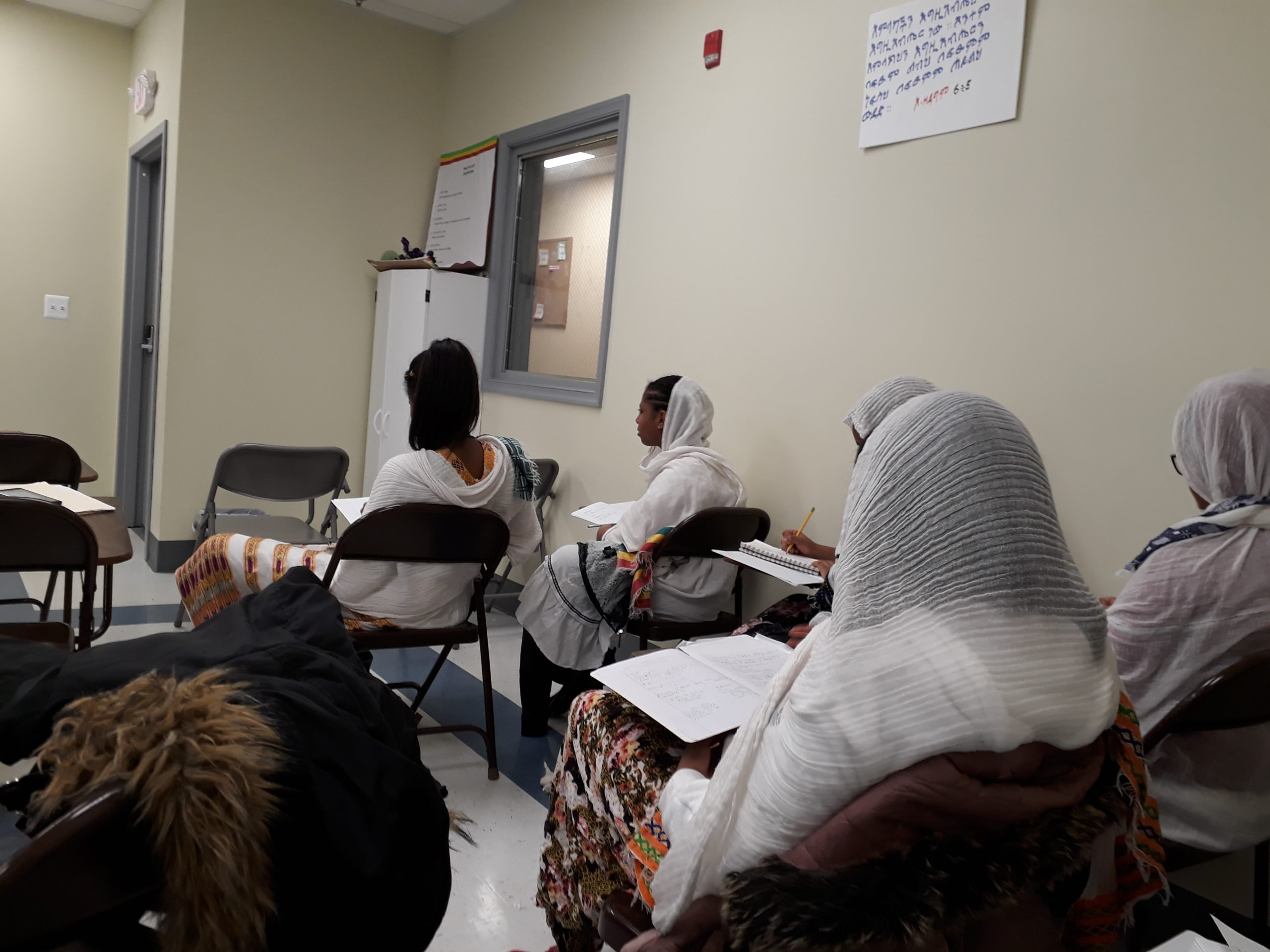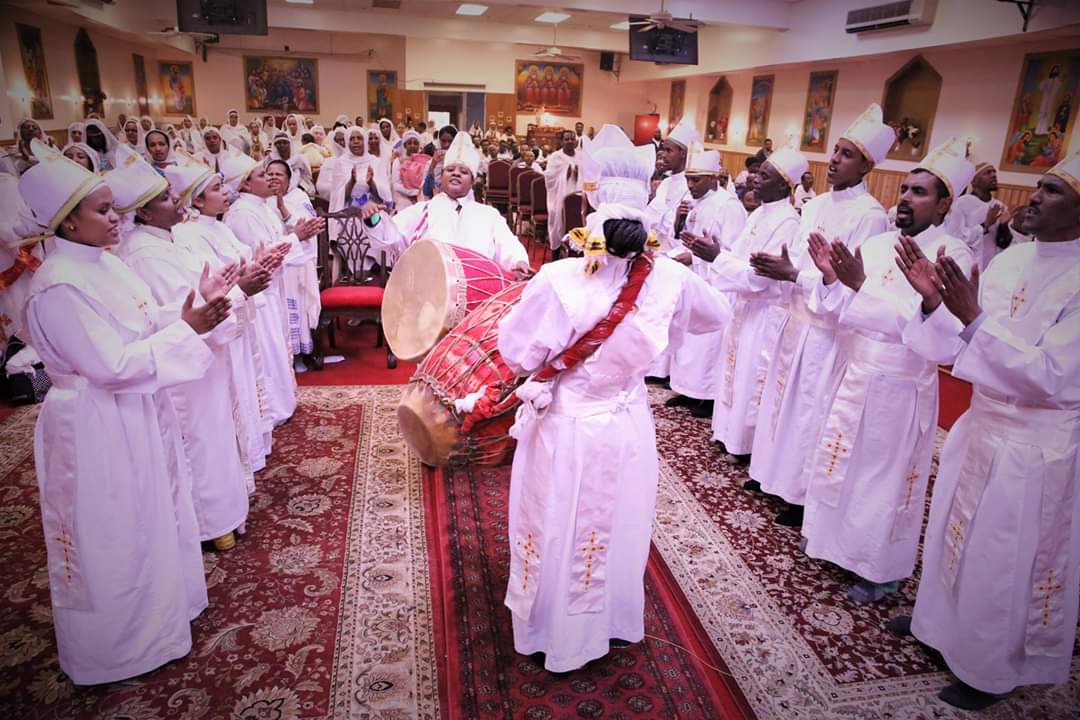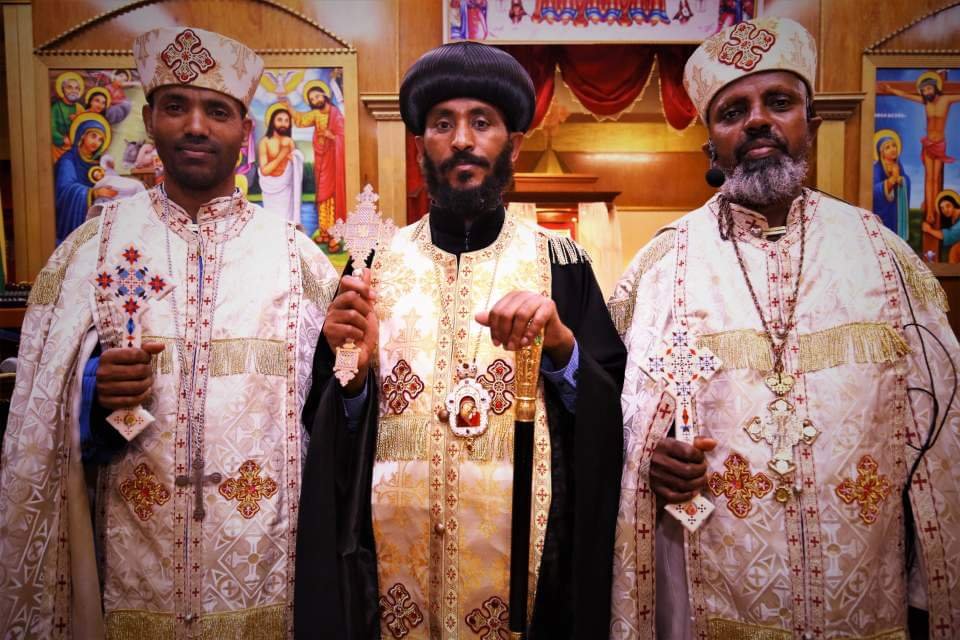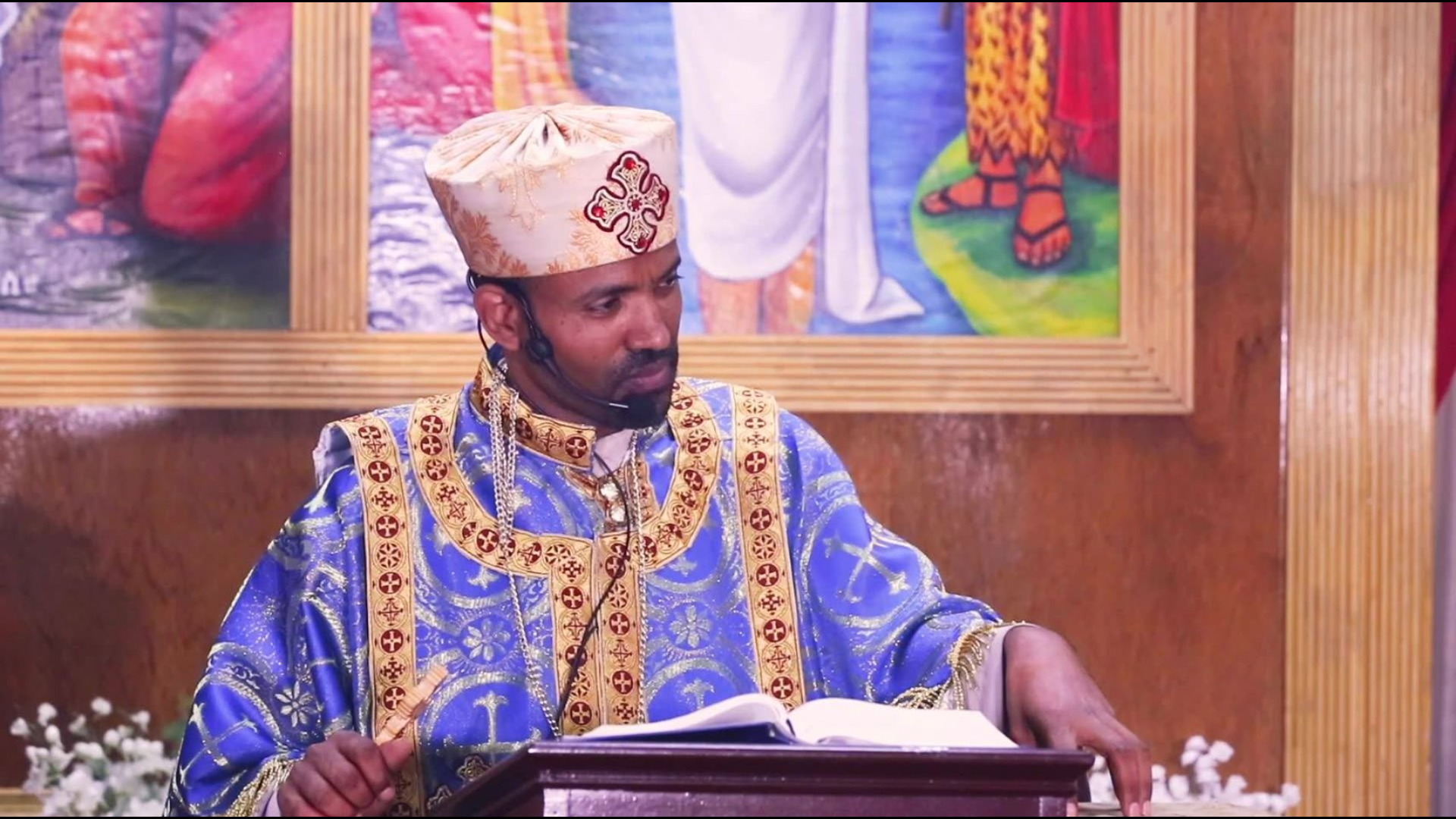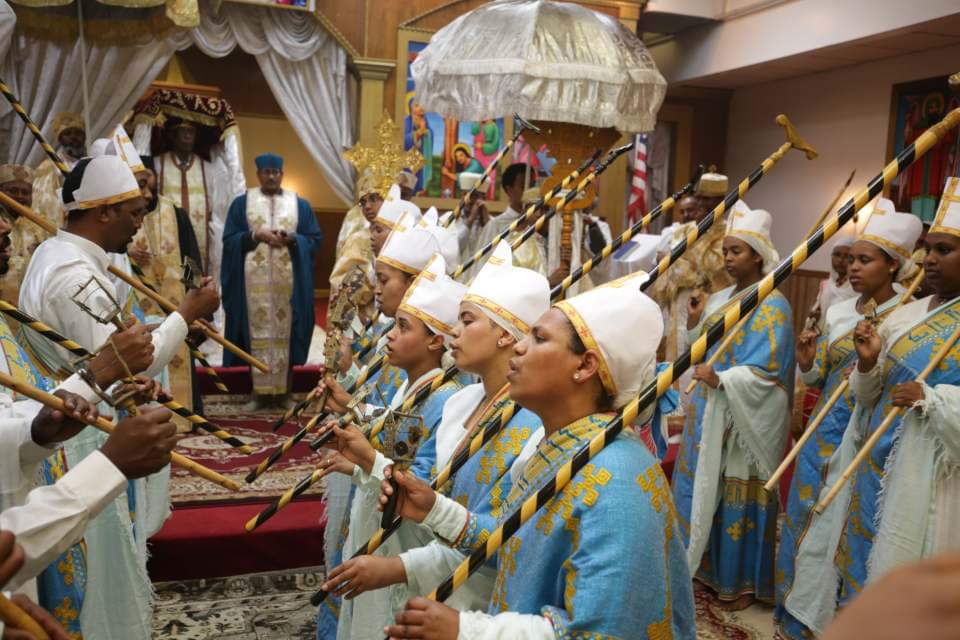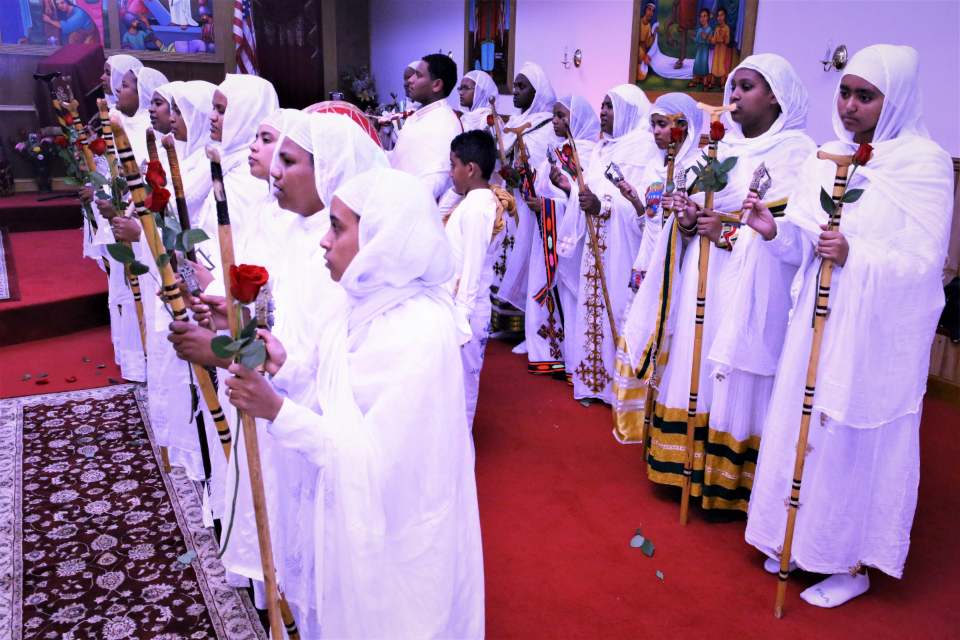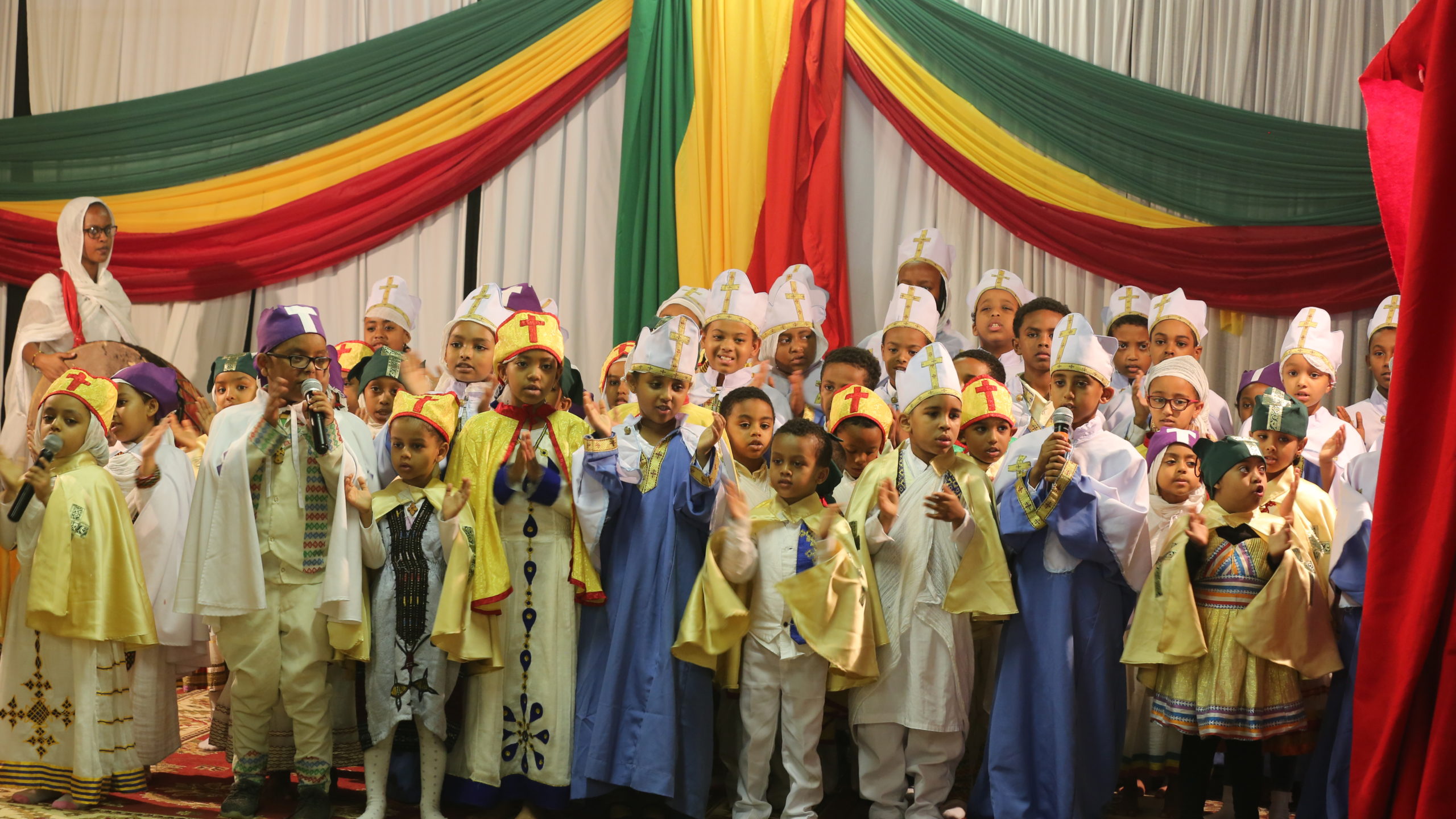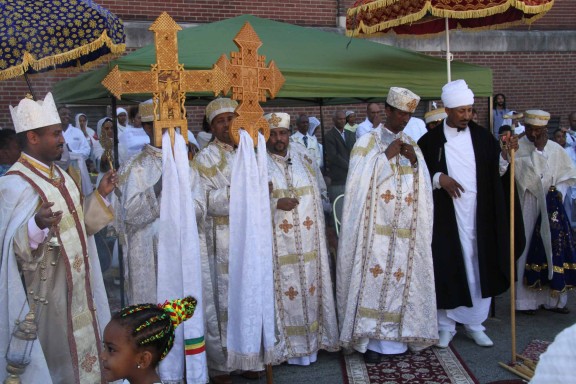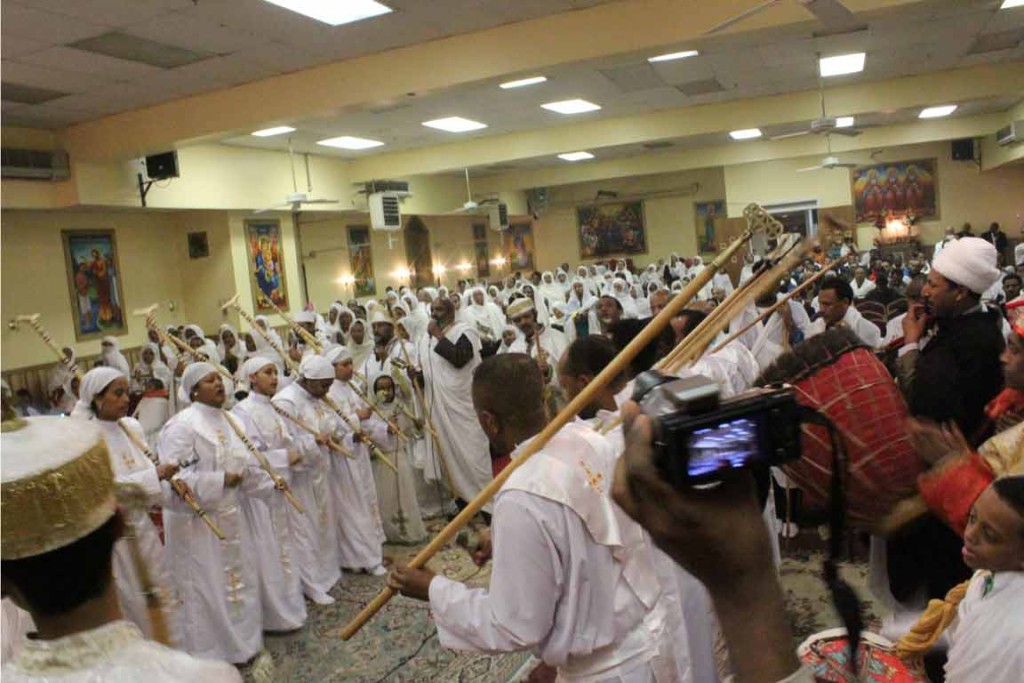Debre Genet Kidus Ammanuel Church in Philadelphia provides the following two main groups of Sunday Services to the worshipers.
The Seven Sacraments |
Sunday Proceedings |
|---|---|
|
|
|
|
|
|
|
|
|
|
|
|
|
|
Sunday Proceedings
For presentation purposes, we have listed these proceedings in reverse order. Bear in mind the some of the Seven Sacraments we have listed in the services are performed during the Sunday Sermon – one instance is the Holy Communion.
5. Sunday School – In the Ethiopian Orthodox Tewahedo Church, the Sunday School’s purpose is to teach the young and the newly converted about the faith of Tewahedo Christianity. Participants learn the doctrine, tradition and proceedings of the Tewahedo Christianity. This is because Sunday is the day of rest and the day to praise Christ in Trinity – the Father, the Son, and the Holy Spirit.
4. Choir – Ethiopian Orthodox Tewahedo Church has its own church hymns (songs) called “Mezmur.” The Church Mezmur was given Kidus Yared (Ge’ez: ቅዱስ ያሬድ) (April 25, 505 – May 20, 571) by God who appeared to St. Yared in the form of 3 doves (representing the Father, Son and Holy Spirit). Church mezmurs are sacred chants and are different from secular Ethiopian songs in content and style – the way they are chanted. Mezmurs are chanted in praise of the Father, the Son, the Holy Spirit and different Saints. This makes mezmur sacred. Mezmurs are also chanted in Kidus Yared’s Zema or hymn. The church choir, therefore, practices different themes of mezmurs to be chanted at the end of the Sunday Sermon before the Gospel preaching.
3. Sunday Sermon – The Sunday Sermon at Debre Genet Kidus Ammanuel Church starts everySunday after the choir mezmur. The sermon is the teaching from the gospel of that day and if the day is a Holiday the sermon teaches the history and significance of the holiday and its relevance to our lives.
2. Qidase – Qidase is the Holy Communion (Qurban) service that turns the offered bread and wine into the Holy Body and (kibur) Blood of our Lord and Savior Jesus Christ. It begins every Sunday at 7am here at Debre Genet. In the old testament, man had to offer sacrifices to God, but now in the new testament God sacrifices to man. The sacrifice he gave us is his Body and Blood. The Holy Communion is the culmination of all sacraments. Qidase proceedings are displayed in three languages (Ge’ez, Amharic & English as shown below) for worshipers to follow the program actively and knowingly.
1. Morning Prayers – The morning prayers on Sundays at Debre Genet begin at 5am. First there is the reading of Tamire Maryam (the book of the Miracles of Virgin Mary), which is always preceded by melka si’il. Then the books of saints that are commemorated that day are read. Tamire Iyesus (Miracles of Jesus) is then read last. After a few more prayers asking for the Virgin Mary’s intercession, the last prayer is said, Kidan (the Prayer of the Covenant). Kidan is said to praise the almighty God who is full of Light for all that he has given us. If there is no baptism or Holy Matrimony service that day then the day continues with Qidase.
Sunday Sermon proceedings are displayed in three languages (Ge’ez, Amharic & English as shown below) for worshipers to follow the program actively and knowingly.
Worshipers can follow the Sermon service via the display in three languages (Ge`ez, Amharic & English).
Source of services explanation : The Ethiopian Orthodox Tewahedo Church., Faith, Order of Worship and Ecumenical Relations. Second Edition. (2004). Addis Ababa: Tensae Publishing House. Pp 35-44
The Seven Sacraments
1. Baptism – Of the seven sacraments, Baptism is the first. Baptism is the sacrament through which we are reborn and enter the Kingdom of God (John 3:5). Baptism has a Biblical basis (Mathew 28:19-20). Through Baptism sin is forgiven (Acts 2:8). Cleansing and blessing is attained through Baptism (1 Peter 3:21; Titus 3:5-6)
2. Penance – Penance means to feel remorse, repent and cleanse oneself from sin. Although Christians are reborn through Baptism, men are liable to commit sins. Therefore:
-
Every Christian should have a father confessor (soul-father).
-
Everyone should go to the father-confessor and confess his/her sins (Leviticus 14:31, Mathew 8:4; Epiphanius Faith of Fathers Hai. Ab. 59:20).
Those who confess their sins and return to God receive the grace of God and by receiving the Holy Communion they will enter to their former place of honor. The Amharic term for Penance is “Niseha.”
3. Matrimony – Christian marriage is one of the seven sacraments which is performed in a church by means of which the grace of the Holy Spirit is obtained. Holy Matrimony is based on the Bible (Genesis 1:27-28, 2:18; Mathew 19:4-6).
4. Confirmation – It is the holy ointment which one is anointed after Baptism. Confirmation like Baptism is performed once and cannot be repeated. Through the sacrament of confirmation, the believer is granted the gift of the Holy Spirit. In the Apostolic time the baptized person was granted the Holy Spirit by the laying of the hands (Acts 20: 14-17).
5. Holy Communion – Holy Communion is the culmination of all sacraments of the Church. Holy Communion means offering of sacrifice. This is not an offering of man to God but the offering of God for man. The sheep and goats were offered as sacrifices in the altars during the Old Testament times. However, these were preceding examples of the offering of the flesh and blood of Christ during the New Testament. The offering of bread and cup of grace which Melchizedek offered to Abraham (Genesis 14:18) and the sacrifices which the Israelites offered during the day of their liberation exemplify Christ our pascal lamb.
Holy Communion has Biblical foundation (Mathew 26:26; 1 Corinthians 11:23-25). When the priest puts the bread on the paten and the wine in the chalice and conducts liturgical prayer, the bread is changed into the body of the Son of God and the wine into the blood of the Son of God. What is thus given in our Church is the body and blood of the Son of God.
6. ORDINATION – This is the sacrament through which the clergy are entitled to perform the various services of the Church. This sacrament has Biblical basis (Mathew 28:19-20; Ephesians 4:11; Acts 26:20). There are three hierarchical ranks of Ordination. These are deacon, priest, and bishop.
7. Unction of the Sick – It is one of the Seven Sacraments of the Church. It is an anointment administered to the sick. It has Biblical origin and is administered by bishops and priests (Mark 6:13; Jas 5;13-15).
Please find different service request forms below. Click on the text link to access the form in PDF format.
You can fill out forms online or download and fill the required forms.
Online and Printable forms:
-
የአባልነት ፎርም ሞልቶ ለመላክ እዚህ ይጫኑ Click here for Online Membership registration form
-
2.የአባልነት ፎርም ሞልቶ ለመላክ እዚህ ይጫኑ Click here for Membership registration PDF form
-
የክርስትና አገልግሎት መጠየቂያ ቅፅ ሞልቶ ለመላክ እዚህ ይጫኑ Click here for Baptismal Service Request form
-
የክርስትና ምስክር ወረቀት መጠየቂያ ቅፅ ሞልቶ ለመላክ እዚህ ይጫኑ Click here for Baptismal Certificate Request form
-
የመታሰቢያ እንዲሁም የማንኛዉም አይነት ፀሎት አገልግሎት መጠየቂያ ቅፅ ሞልቶ ለመላክ እዚህ ይጫኑ Click here for Memorial and Prayer Service Request form
